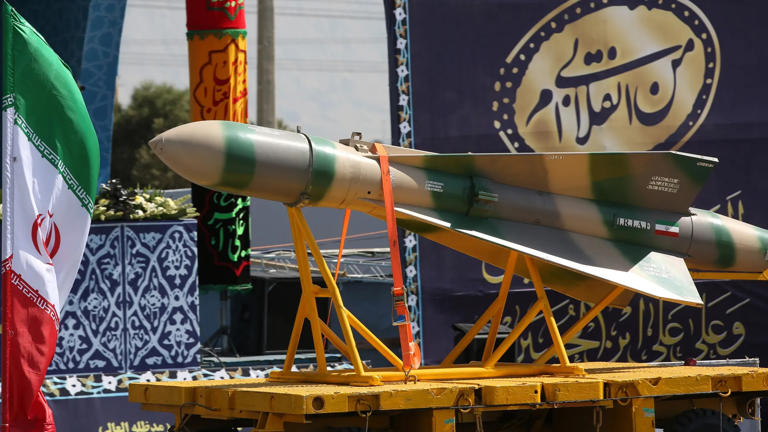“Trump’s New Iran Sanctions Revealed: The Hidden Missile Threat That Could Change Everything”
On May 14, 2025, the U.S. Treasury Department announced new sanctions targeting Iran’s ballistic missile program. These sanctions affect six individuals and twelve entities, primarily based in Iran and China, accused of aiding Iran’s efforts to domestically produce components for its missile program, including critical materials like carbon fiber used in manufacturing intercontinental ballistic missiles. (Reuters)
This move is part of President Donald Trump’s renewed “maximum pressure” campaign against Iran, which was reinstated in February 2025. The campaign aims to curb Iran’s missile development and oil exports amid broader geopolitical tensions. (Reuters, Reuters)
In addition to the missile-related sanctions, the U.S. has also sanctioned over 20 companies involved in exporting Iranian oil to China. These companies, including several based in Hong Kong, are accused of facilitating the shipment of Iranian crude oil worth billions to China, with proceeds allegedly supporting Iran’s ballistic missile programs and regional terrorist groups. (Reuters, Financial Times)
The sanctions come amid ongoing nuclear negotiations between the U.S. and Iran. Recent talks in Muscat, Oman, have shown cautious optimism, but major disagreements persist, particularly over Iran’s insistence on its right to domestically enrich uranium. (WSJ)
Iran has criticized the new sanctions as incompatible with negotiation efforts. Iran’s Foreign Minister Abbas Araqchi warned that reimposing United Nations sanctions on Tehran using the “snapback mechanism” could lead to irreversible tensions and end European involvement in the 2015 nuclear deal. (Reuters, Reuters)
The U.S. maintains that these sanctions are necessary to prevent Iran from developing intercontinental ballistic missiles and to ensure regional stability. Treasury Secretary Scott Bessent stated, “The Iranian regime’s relentless and irresponsible pursuit of advanced ballistic missile capabilities represents an unacceptable threat to the United States and the stability of the region.” (U.S. Department of the Treasury)
As the situation develops, the international community continues to monitor the unfolding events and their implications for regional and global security.
